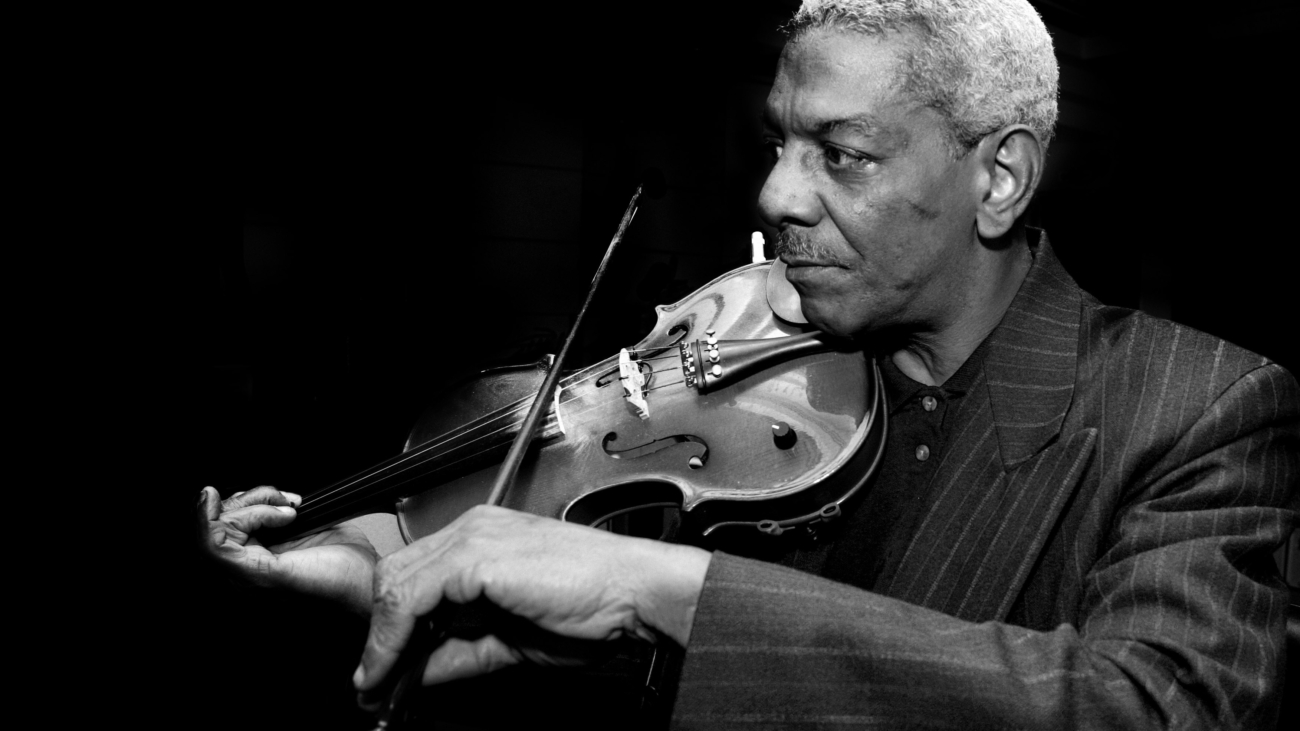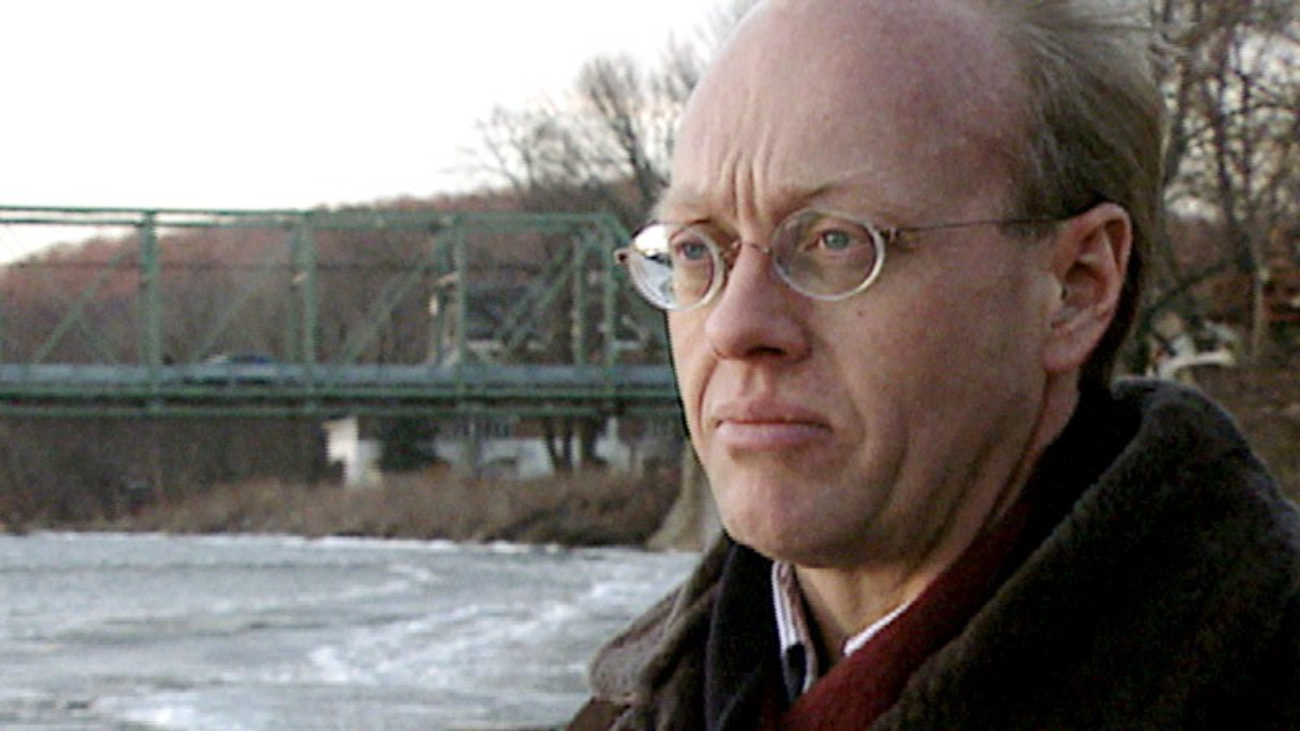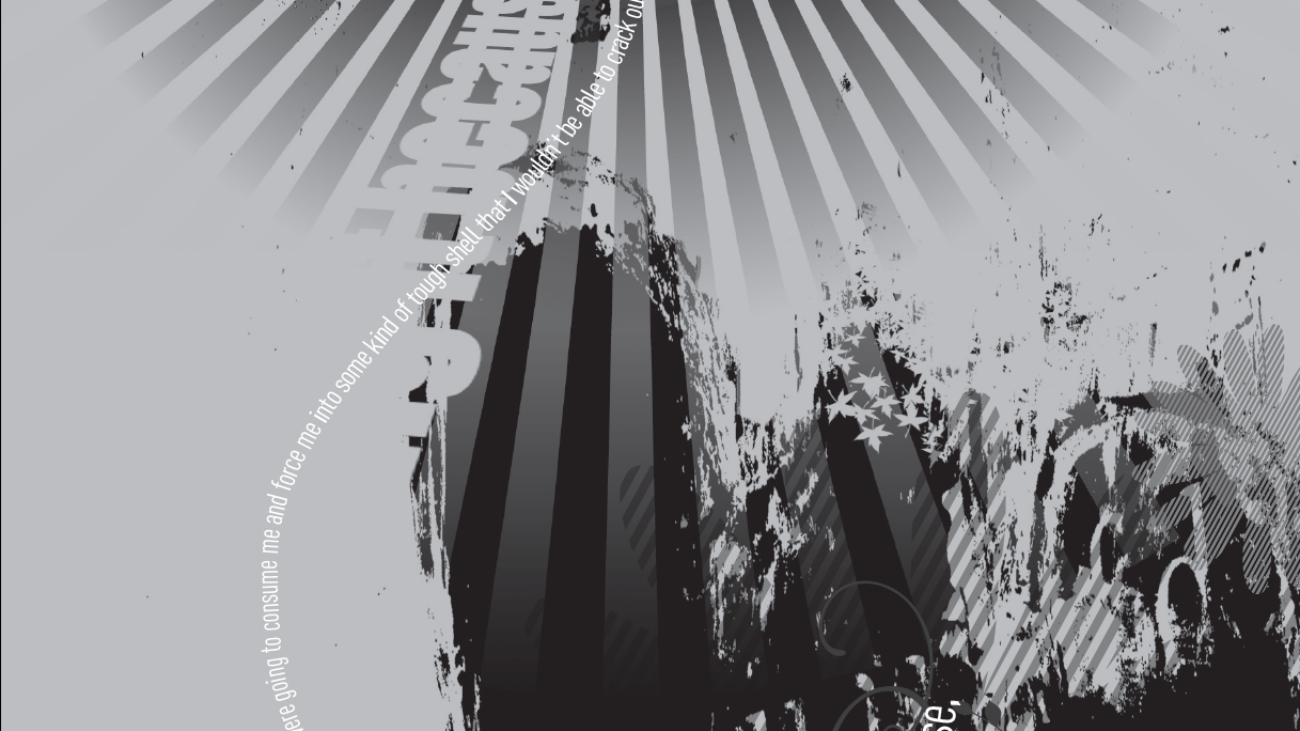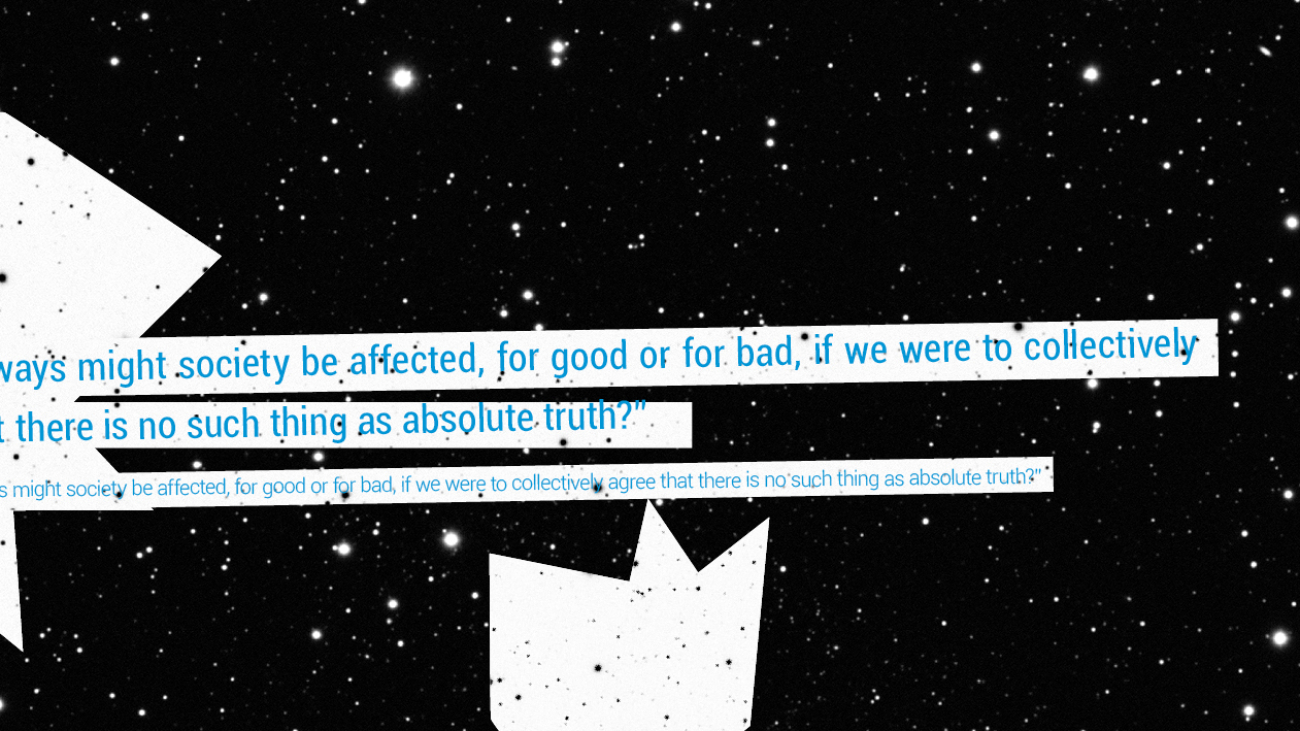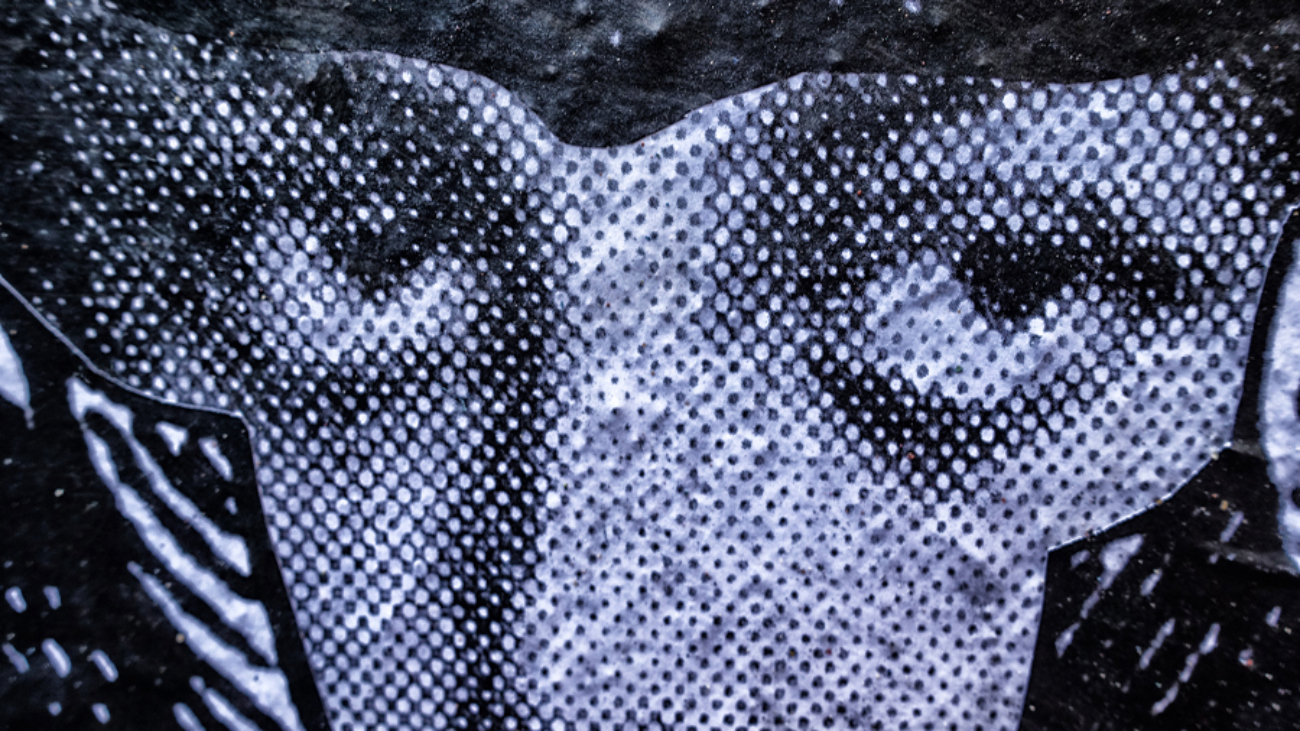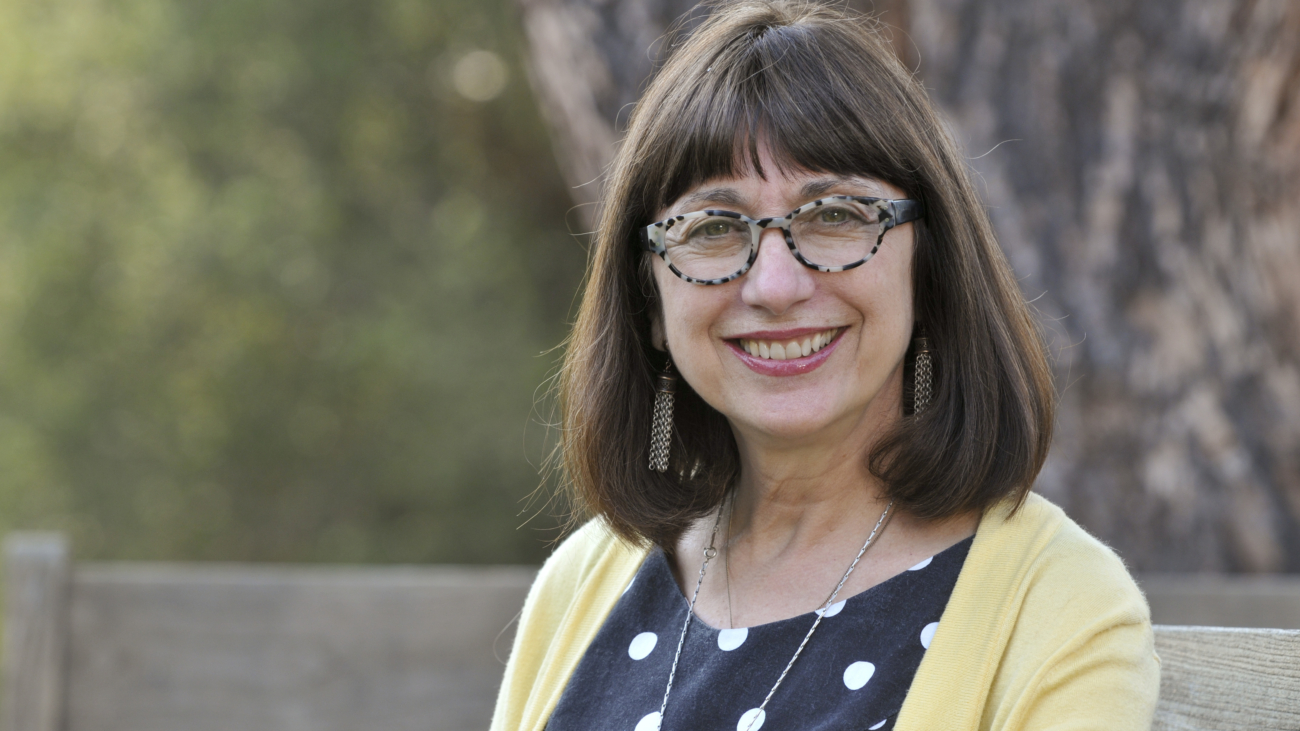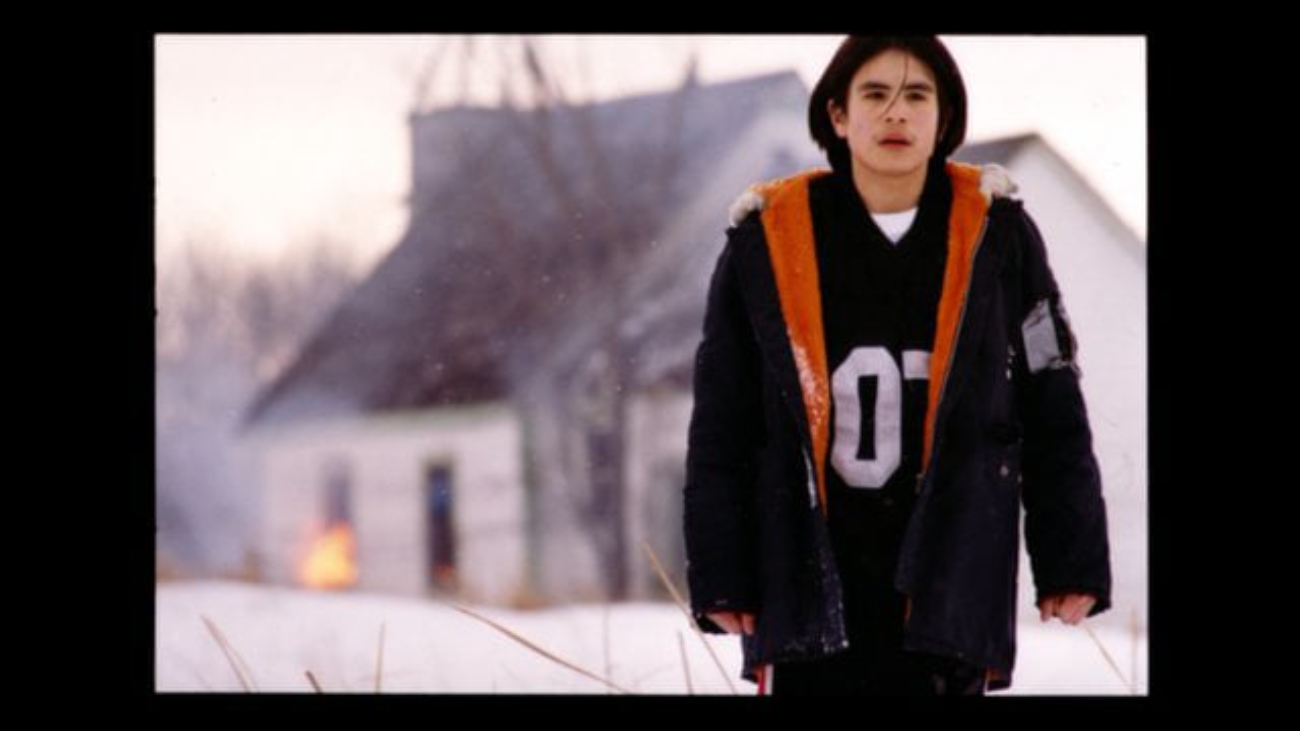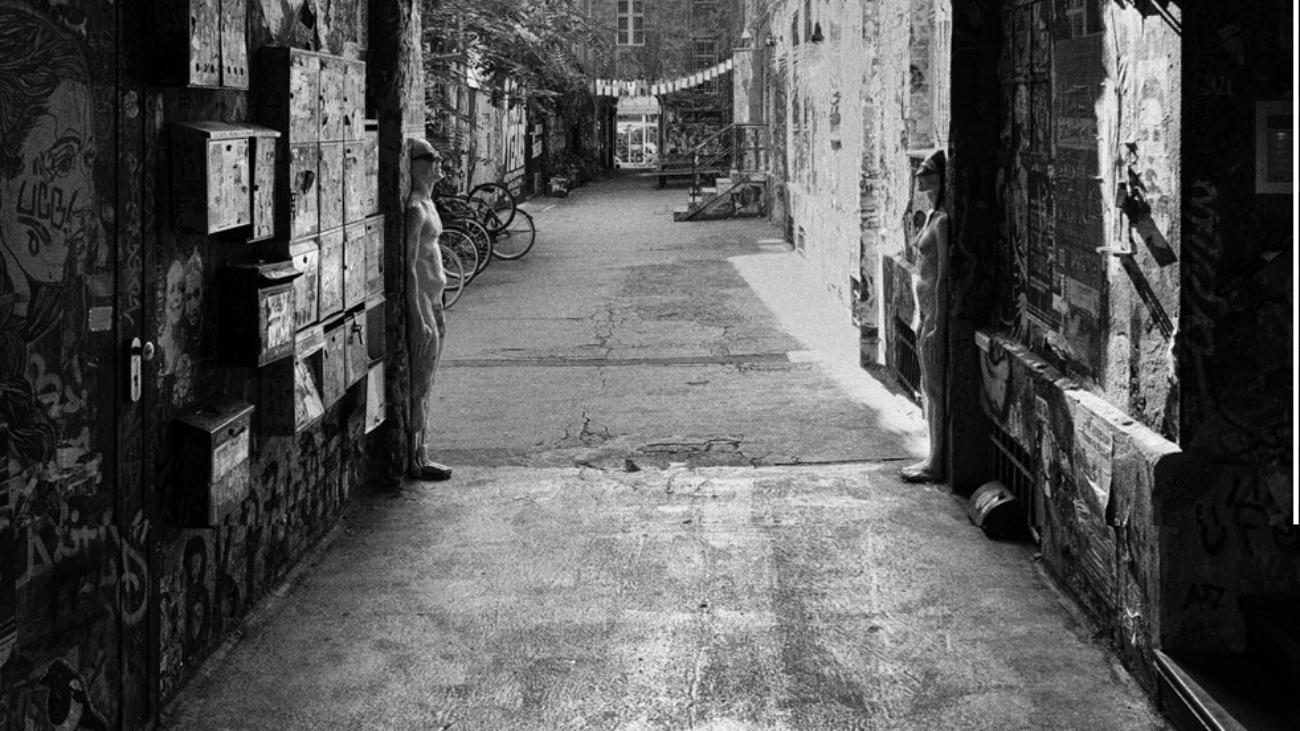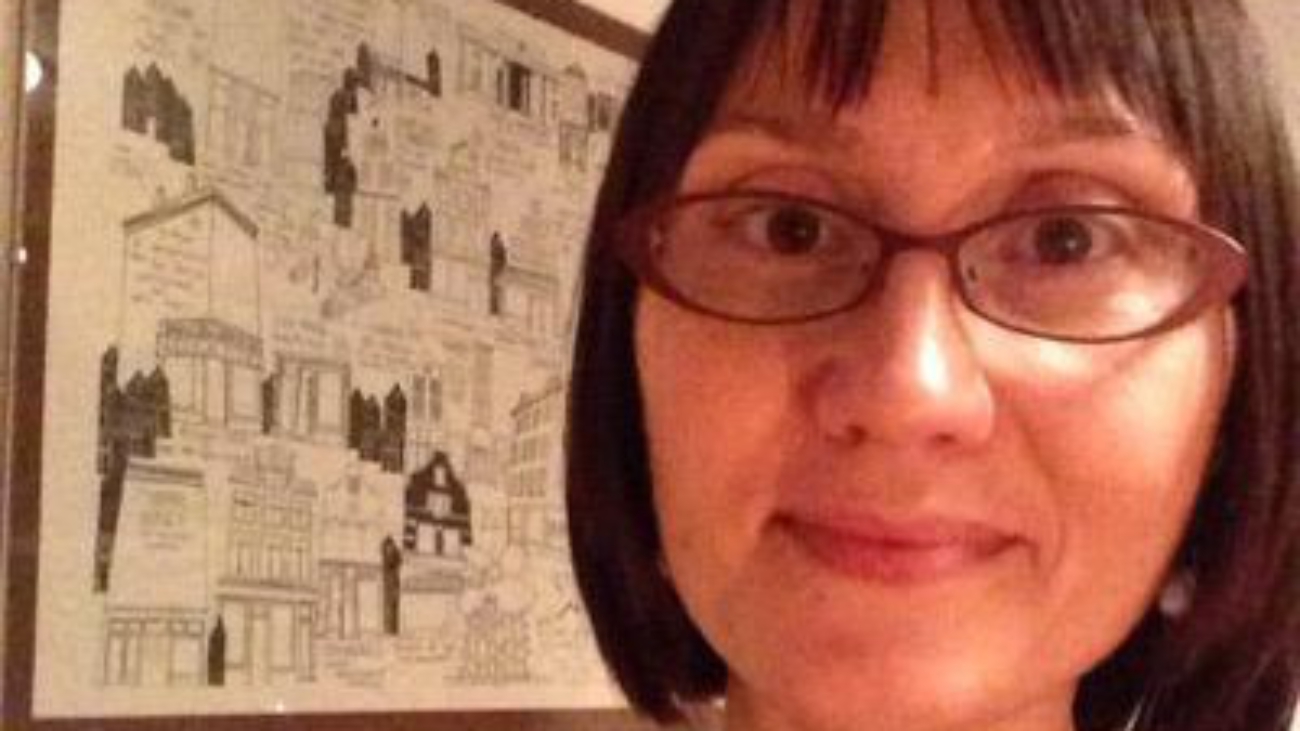A discussion with jazz master Billy Bang.
Interview by Erich Christiansen, 2010.
Billy Bang first came to prominence in the late 1970’s and early ‘80’s, as one of the few jazz musicians playing the violin. He co-founded the acclaimed String Trio of New York, then went on to make a number of records under his own name, always a vital member of New York’s downtown improvisational scene. His career gained new attention in 2001, when he released the first of two albums that dealt with an aspect of his life that until then had not been touched in his music: his time in the Vietnam War.
Born William Vincent Walker in 1947, Billy’s family moved to the Bronx when he was an infant. As a child, he was first able to play music at a school he attended in Harlem. Students there were assigned instruments according to their size; so being of slight build, Billy received a violin rather than his preference, the saxophone or drums. He later earned a scholarship to a prep school in Massachusetts, where he not only gave up playing the violin, but also encountered racism and class disparities with his privileged classmates. He returned to the Bronx, and at the age of 18, received his draft notice. Billy served in the infantry, including in the Tet Offensive, attaining the rank of sergeant during the course of a tour of duty. After being mustered out, he dealt with a number of war-related psychological problems that the Veterans’ Administration of that time was seemingly ill-equipped to address. He briefly studied law at Queens College, before becoming involved with a mysterious revolutionary group who called upon his military expertise to help them buy guns. On one such buying trip to Baltimore, he instead bought violins from the pawnshop he was visiting—and thus his life in music was reborn.
In his subsequent twenty-five years as a musician, Billy has made two Vietnam-themed albums, both on Canada’s Justin Time label: 2001’s Vietnam: the Aftermath (on which he played with musicians who were mostly fellow veterans) and 2004’s Vietnam: Reflections, which included contributions from Vietnamese musicians.
Pulse: I’m going to start off with sort of an abstract question, but that’ll get us rolling, anyway. How would you characterize the relationship between music and traumatic events, whether personal or political? In your view, what is music’s role in healing?
Billy Bang: Speaking from a very personal point of view, since I have been playing music, it seems to have helped my personal traumatic event, my time in the war, in Vietnam. I believe it culminated to more of a formidable help for me when I started writing about the experience through music. In other words, I had to think more about it, and bring it to the forefront of my mind. I’d been avoiding it, not wanting to face that part of my life, and it’d been stewing in me like a cancer. But once I was obligated, in 2000, to deal with it directly, that’s when I saw a big change in my own personal healing.
You address this in the liner notes to Vietnam: the Aftermath when you write: “This project has been in my mind for at least thirty years. My inability to confront my personal demons, my experiences in Vietnam, has been a continuous struggle.” And a little later, you say that because of this: “At night I would experience severe nightmares of death and destruction, and during the day, I lived a kind of undefined ambiguous daydream.” I was wondering if you could talk a little more about that, about the ways that not confronting this, of not expressing it, affected your life during that time.
Well, I think it really hurt a lot of my life between the time I came home and the time I wrote Vietnam: the Aftermath. The years seemed to just go by like a fog. When people were speaking with me, or to me, I didn’t know if I was really speaking to them, or hearing them. I was trying to avoid a lot of things. I didn’t want to face the reality of the problem I had. I tried to seek help, though. I went to see different psychologists, through the Veterans’ Administration, the hospital, but for some reason I didn’t seem to relate to the psychologists themselves. I couldn’t understand how they [could] wear my shoes during that time and understand what I [was] dealing with. They had all the books in the world to help them understand me, but I just could not relate to them, not living like I had lived, coming up in the ghetto, coming up with a single mom, and onto Vietnam. So I dismissed what they said, I just dismissed it. I never stayed long enough to get any real help. Maybe I never gave people the proper chance or opportunity.
I think a lot of it was my fault. I did well, bringing up a family, but I think I could have done a lot better. It’s difficult to differentiate the problems; I don’t always know if I’m having a personal problem with a person, or if Vietnam is haunting me at that moment. Honestly, it wasn’t until 2000 that I felt that I was reborn to the innocence that I remember when I was 17 years old. As though I lived through 30 years of my life—and anything in between was a big fog for me.
You say also in those liner notes that the project finally happened only when it was suggested by Jean-Pierre Leduc of your record label, Justin Time. Do you think you would have eventually done an album like this anyway, or did it take an outside catalyst like that to make it happen?
I’ve always wanted to do this. But I didn’t have the finances or the courage to try. “Bien Hoa Blues,” which is on the CD, was written 20 years earlier. That had always been in my mind. But I was under the gun when he offered it to me. I had just moved back from Berlin, back to America. I was at my daughter’s house, and I’m sure her and her husband were getting sick of me. I needed finances badly. But even when they suggested that project, I didn’t take it; I told them I would get back to them. To me, it was too personal to put in public. I never wanted to talk about it; most veterans don’t talk about Vietnam. Most veterans from any war don’t talk about it.
That’s true. Both of my grandfathers were in the Second World War, and they would tell stories about their military service, but about the actual fighting, they would never say anything.
Right. When you have these horrible incidents and nightmares, you’re not proud of them, you don’t even want to talk about them, you know? I never wanted to publicly think about it. I was under the gun though, as I said, I needed the money badly. So I tried to reverse it on them and make some demands, ask them for X amount of dollars up front. I told them it would allow me to concentrate on the music and not have to make me hustle and work for rent and food; I could just focus on this project, and get it done in a reasonable time. They agreed, so the ball was back in my court.
You mentioned a minute ago the other vets and others who have gone through this experience, and I saw in one interview that you said, “We weren’t really fighting for any nationalistic cause. We were fighting to get the hell out of there, at least I was.“
Right. And get back home in one piece. Hopefully.
Was that attitude widespread?
No it was not widespread. Maybe [among] a lot of the minority cats. But no, there was a lotta guys over there from the John Wayne syndrome, people who were fighting for America. It’s really hard for a black American to think of oneself as an American. We’d just started voting – we were still seeing dogs and water-hoses being put on us—this was right during the Civil Rights movement.
It seems that over the years most of the media images of the Vietnam War centered on the experiences of white soldiers. What was it like being a black soldier during this time?
I don’t know why it was centered on white soldiers; although we make up 20% of the population, I think we probably made up 40% of that war. But statistics are not my thing. We were drafted. And it was that, or go to jail for five years. It was just pretty much the lesser of the two evils. It was not like, “Wow, let me go join this conflict because, whoa, we gotta save our country.” There are some people who might’ve believed that. “Let’s go fight communism,” or something. It was only after I came out of the war that I found out it was basically being fought for multiple conglomerates with capitalistic concepts. I didn’t know these things before I went into the war. The Pentagon Papers coming out really spelled that out for everybody. Yeah, but you see, I went in the service in ’66; a lot of people became a bit more educated in the early seventies. Even I did. In the late sixties, I was in a neighborhood where the elderly black folk were still under the concept of people such as W.E.B. Dubois and the NAACP. Their concept was to go into the army – it’s only good for a person – rather than being out in the streets, doing nothing. That was the general concept.
But if I would have looked further into Dubois… he went back on his own word about “closed ranks.” In 1917 he wrote this article, about Blacks should join the army for World War I… And the year that they came home after the war, 1919, was called the red summer; that was the time of the most lynchings this country has ever seen. If I had been knowledgeable of these things, then I would have had a way to make an opinion based on factual things, based on the yin and the yang of education, or balance. I had just the one, straight ahead, narrow minded type concept that I was getting from everybody. Everybody except my mother, I have to tell you that. She’s the one who made me sit in front of the t.v. so I could watch Malcolm X; she’s the one who showed me this black person being handcuffed because he resisted the war. She was the one who was trying to turn me to [avoiding the war by going to] Montreal. She was the only person that would point me in that direction. And I regret it to this day that I didn’t listen to her.
You spoke a minute ago about coming into that situation from the Civil Rights movement. Many people see this time as also having a profound influence on the music being made. One example is how jazz had become freer and more exploratory during the ‘60’s, a time when black people were fighting for their freedom in the Civil Rights movement.
It was all under the banner of liberation. Liberation in the struggle, liberation through the music. It’s probably why I went to that style of music, because it was radical and it was against the system, it was something very new in our heads. Even then, the elder black folks in the neighborhood did not like John Coltrane: couldn’t stand him. And they didn’t like the later recordings of Miles Davis; he was also considered an enemy. We were going to our local candy store and we had a Coltrane tape up loud—not super loud, like the way kids have today—but where you could hear it. And the guy said, “Turn that off. Get that outta my store. Don’t ever come back in here again with that awful blah, blah, blah.” He was into, maybe, Charlie Parker, or something like that. But even those guys were radical for their time. So everyone has their different points, but once you get settled and satisfied in your area, it’s hard to move on to newer things. And that’s true for everybody; that’s beyond ethnicity and religion and things. Once you become comfortable in your area, it’s hard to move on. I never became comfortable, I was always looking, searching.
Do I have it right that you didn’t play any music during the war?
No, not at all. God, no. Not one note. The only music I played was the rat-a-tat-tat of machine gun fire. Music was the furthest thing from my mind.
So you didn’t get to hear any of the Vietnamese music either, then?
Not that I remember. I remember hearing it only in Saigon, which I very rarely went to, because it was off limits for us, but we had to pass through there to go to R&R. It was only after the war that I made a conscious effort to try to seek it out because I felt very guilty about trying to hurt people who never did anything to hurt me. I tried to learn more about the people who I was badly misinformed about, tried to share, or learn from them so I can share, in the future, and understand. Because it’s misunderstanding and ignorance that brings us to war and to hate. I thought the more I could learn and understand, the less ignorance I would have and the less hatred I would have, especially [concerning] the people I was forced to fight.
Can you give us any insight on what’s going on in Iraq and Afghanistan, based on what you went through?
I see the same problem today as we did then. I think it’s worse today, though, to be honest. Because it’s beyond nationalism, it’s a religious situation now. It’s jihad for them, for the Afghans and the Iraqis. They feel people tramping on their religion, on their life, on their whole being. So they’re fighting with every tooth and nail to counteract that. And I think even the Vietnamese didn’t have that much counteraction in them. And also the style of war is different. We didn’t have that many explosives on the road, , I.E.D.’s. There were a lot of booby traps that were meant to kill, but these folks are dealing with so many explosives; there’s so much maiming going on. So it’s a more horrific type war, I think. And for those who are not being hit, just watching this and experiencing this, I think their nightmares are much more traumatic. All wars are bad, but I somehow think the one today is even worse. Cause I can fight a guy about money, but I wouldn’t want to fight a guy about his religion.
I’ve read that you first started playing the violin by chance, since in your school’s orchestra you were each assigned instruments based on your size. But you’ve stuck with it over the decades, even relearning it after not playing for years.
When I came out of Vietnam, I really wanted to play music. I thought that was the safest and the purest thing I could do without hurting another person in life. Maybe there’s something I can do to bring some happiness and some joy. I tried the flute, but I just couldn’t get it under my grasp; the only instrument I truly know something about is the violin. I know it’s not jazz; but I believe you can take any instrument and get your inner thoughts and your inner feelings to come out through that instrument. It’s a vehicle. So I went back to the violin. I just dedicated my life to trying to play music. I left the materialistic world. I didn’t have to drive a big, bright red Cadillac around the streets of Harlem, and have nice, shiny alligator shoes and a silk suit. I didn’t care about those things anymore. I just wanted to try to bring some peace and harmony into the world, because it would redeem my own soul.
I don’t really know how much this has been made public knowledge yet, so I ask on behalf of our readers who don’t know, but I know from having been talking to you that you’ve recently been diagnosed with cancer, and are going through some pretty intensive treatments for it. How are you doing?
Not so great. I’m just hoping I can get through this and hopefully I can lick it and it won’t come back, but I’m not quite sure. Because it is a process. It’s actually lung cancer I’m dealing with. That doesn’t seem so positive to me, but… I do all I can out here. But maybe I’ve done all I could for the world. There’s not much I can say about it; it’s just God’s way, you know.
And this cancer is due to exposure to Agent Orange—am I right about that?
Well, I also smoked cigarettes for all this time, but I started in Vietnam. So that’s part of it. And the other part, too, is that they believe it was because I was exposed to the Agent Orange in Vietnam.
So your time in Vietnam is still profoundly affecting you, in life-changing ways, even after all these years?
Sure, that’s true. Yes, that’s really true. I gave up on trying to fight it, and now I just have to accept that it’s going to be this way.
Photograph by Stefania Zamparelli

